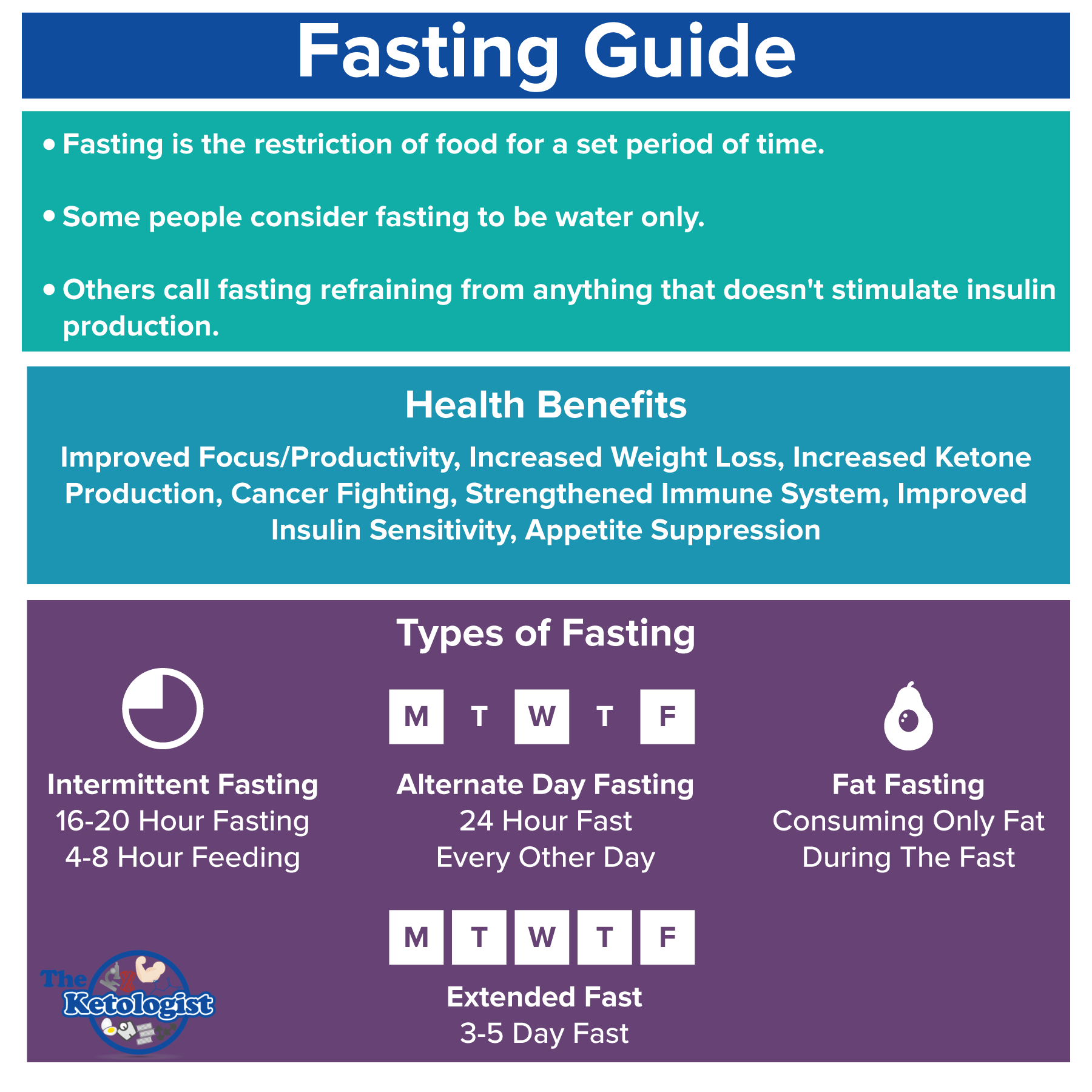To Eat Breakfast or Not To Eat Breakfast
Fasting is a practice that is becoming more and more popular as we gather more research on the robust health benefits associated with it. What actually is fasting? 
While fasting is a common practice, as you can see from the infographic, there is still much discrepancy on what actually classifies as fasting. To better understand, lets go into what happens during a fast.
What Happens During a Fast?During a fast our bodies burns through any available energy that is left over from our previous meals, that is the protein, carbs, and fat that are available and have not been used for other processes.
As the fast continues, the body runs out of this left over fuel, blood glucose is lower and insulin secretion slows down. During this time, the body has to dip into another source of energy. As insulin lowers, another hormone known as glucagon, is secreted. Glucagon has several functions in the body one of which is to free stored fat to be used for energy in the presence of low blood sugar.
When fat from our body fat stores is released into the blood stream, it can be taken up by the tissues of the body and used for energy. If there is enough fat available (i.e. the fast is continuing) then some of this fat can get turned into ketones by the liver. These ketones provide the body, primarily the brain, with an additional energy source to replace blood glucose.

What Actually Classifies As Fasting?
Now the question becomes, what actually is fasting? While some people classify it as restricting from consuming anything other than water, others classify it as refraining from eating anything that could spike insulin such as protein and carbohydrates. This is called fat fasting.
If you are familiar with the ever popular Bulletproof Coffee then you are familiar with fat fasting. This strategy allows for the consumption of fats like coconut oil, butter, MCT oil, and heavy cream during the fast since research has found that fat infusions do not increase insulin.

Are There Different Types of Fasting?
There are several different types of fasting which you can see again in the bottom of this graphic:

Health Benefits of Fasting
Fasting can provide many health benefits such as:
- Improving Cognitive Function
- Increasing Fat Burning
- Strengthen Immune System
- Improve Symptoms of Diabetes
- Cancer Fighting
- Suppress Appetite
These health benefits are mostly attributed to the the lowering of blood glucose and the subsequent production of ketones. This is why people who couple fasting with a ketogenic diet likely will experience more robust results but this is a topic for another post!
What Type of Fasting Is Best For Me?
When choosing what type of fasting is best for you, it is important to recognize your goal. If you primary goal is to lose weight, than fat fasting may not be the best option for you since you will be consuming more calories during the fasting period. However, if your main goal is to increase your focus and cognitive output, then fat fasting may be the best option for you since this approach can help increase ketone levels (ketones help the brain function better!).
Regardless, it is important to self-experiment with yourself. See what works best for you and what is most sustainable. You may not get it on the first try but you will in time!
My Approach
Personally, I follow an Intermittent fat fasting regime. I fast from 8pm to 12-1pm the following day, consuming only MCT oil and Coconut Oil during this time. This approach allows me to increase my ketone levels to a greater degree since MCT oil and Coconut Oil can contribute to increasing ketone levels! I take this approach because my main focus is improving my focus and productivity and I have found that this method is very efficient at doing so!
If you have any questions about fasting, ketosis, or the ketogenic diet, please feel free to comment below so I can answer for you. I appreciate you reading my article and I look forward to your feedback!

I am a fan of keto but without any sources or references I can't show my love to this post :(